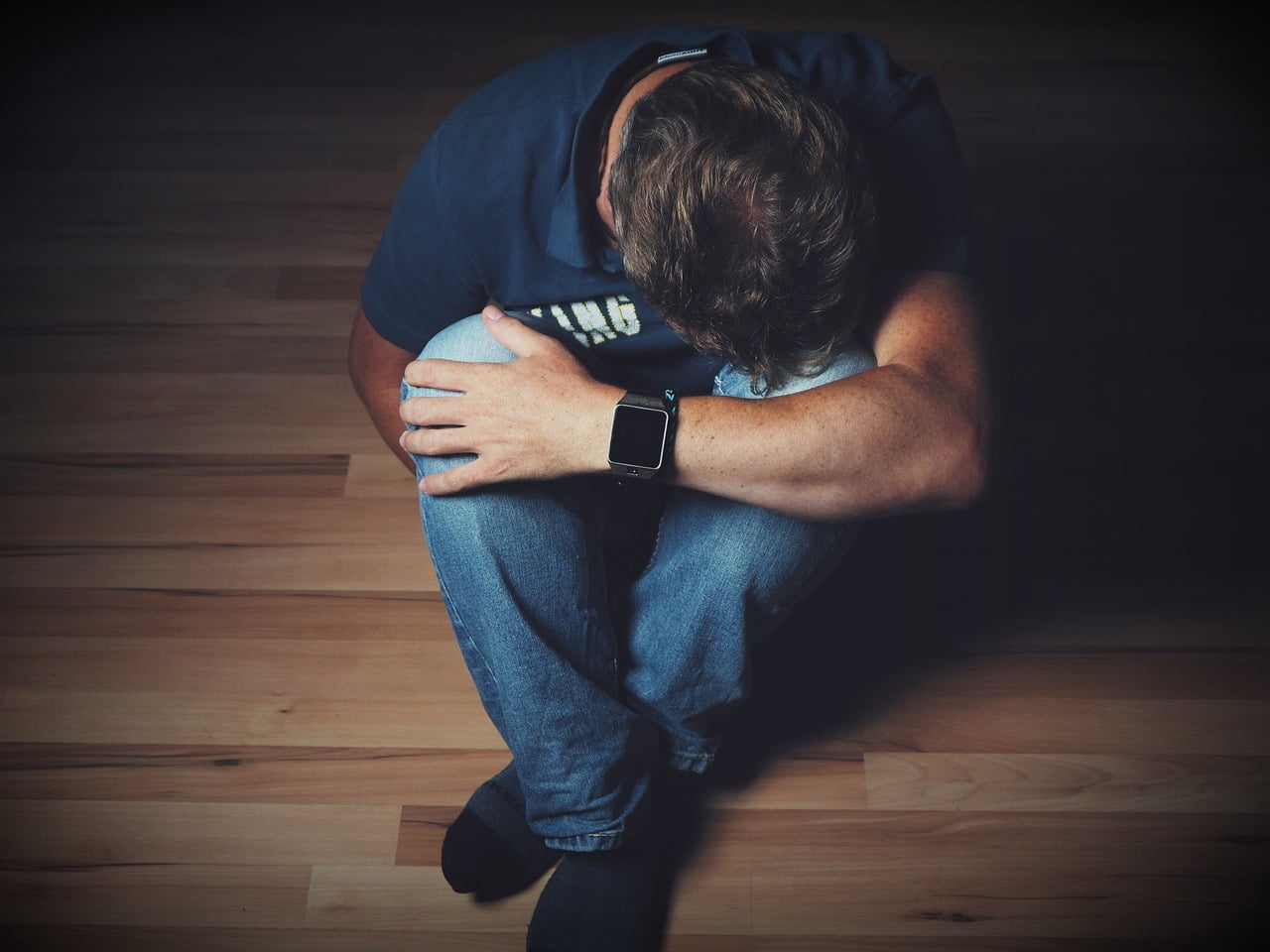Navigating the complexities of bipolar depression requires more than just medical intervention; it’s a journey that calls for a comprehensive approach combining psychosocial support, peer assistance, and effective management strategies. Managing bipolar depression is not only about diminishing the severity of manic and depressive episodes but also about enhancing the quality of life for those affected. This condition, marked by alternating periods of high and low mood, affects millions of people worldwide, making it imperative for us to understand and address the underlying challenges. By focusing on how to cure bipolar depression and manage its symptoms, we can make significant strides towards a healthier, more stabilized life.
In our discussion, we will delve into personal experiences with bipolar depression, highlighting the effectiveness of various treatments and the importance of recognizing symptoms early. We will explore coping mechanisms that aid in managing bipolar symptoms and the role of psychosocial and peer support in building a robust network. Furthermore, we aim to provide insights into long-term management techniques that can sustain improvements over time. Acknowledging and understanding these facets can empower us to take control, offering hope and guidance for those grappling with bipolar depression.
Personal Experiences with Bipolar Depression
Stories from Patients
In our journey to understand bipolar depression, we’ve gathered personal stories from those who live with the condition daily. One patient shared how the unpredictable mood swings disrupt not only their personal life but also their professional environment. They described days filled with energy and productivity, followed by periods of debilitating depression where getting out of bed feels like an insurmountable task.
Another story highlighted the strain on relationships, where the patient’s spouse struggles to comprehend the sudden changes in mood and behavior. This often leads to misunderstandings and, unfortunately, can strain even the strongest bonds.
Daily Challenges
Discussing the daily challenges faced by individuals with bipolar depression sheds light on the persistent hurdles. For instance, managing professional responsibilities can be particularly taxing during a depressive phase. Patients often have to find ways to perform at work despite their internal turmoil, which can be exhausting.
Moreover, the stigma associated with mental health issues continues to be a significant barrier. Several patients expressed how misconceptions about bipolar disorder lead to judgment or dismissal of their experiences, making it harder to seek support or even maintain employment.
These personal insights into living with bipolar depression emphasize the need for increased awareness and understanding. By sharing these experiences, we aim to foster a more empathetic and supportive community.
Effective Treatments
Medication and Therapy
Managing bipolar depression effectively often requires a combination of pharmacological and psychotherapeutic interventions. Although medications are pivotal, they typically provide partial relief, underscoring the importance of integrating bipolar-specific therapies. These therapies, particularly when combined with medications, significantly reduce symptom burden and relapse risk. Evidence-based psychotherapies (EBPs) such as cognitive-behavioral therapy, family-focused therapy, and interpersonal and social rhythm therapy not only complement pharmacologic treatment but also address the psychosocial impairments that medications alone might not tackle.
For many, medications like mood stabilizers and antipsychotics are essential. Lithium and lamotrigine, for instance, have shown effectiveness in controlling mood swings and preventing depressive episodes. However, the potential side effects of long-term antipsychotic use pose a clinical conundrum, necessitating careful consideration and often, a personalized treatment plan.
Lifestyle Changes
In conjunction with medical treatments, certain lifestyle adjustments can significantly impact the management of bipolar depression. Regular physical activity and a structured daily routine are beneficial in stabilizing mood and improving overall well-being. Ensuring adequate sleep and managing stress through mindfulness or other relaxation techniques are crucial in preventing manic or depressive episodes.
Diet also plays a role; a balanced diet rich in fruits, vegetables, and lean proteins can support overall health and mitigate medication side effects like weight gain. Additionally, avoiding caffeine and alcohol can help maintain the effectiveness of medications and stabilize mood swings.
Support groups and psychoeducation are invaluable for those living with bipolar disorder, providing a platform for sharing experiences and strategies that aid in long-term management. These community resources, along with consistent medical care and adherence to prescribed treatments, forge a comprehensive approach to managing bipolar depression, enhancing the quality of life for those affected.
How to Recognize Symptoms Early
Common Symptoms
Bipolar disorder is characterized by significant mood fluctuations that can severely impact daily functioning. During manic episodes, individuals may experience heightened euphoria, increased energy, restlessness, and a noticeable escalation in activity levels. They might talk rapidly, have racing thoughts, and exhibit irritability or agitation. These periods are often marked by risky behaviors such as excessive spending or reckless driving.
Conversely, during depressive episodes, individuals often feel overwhelmingly sad, hopeless, or empty, accompanied by a decrease in energy and activity levels. Challenges with concentration, changes in sleep patterns, and a lack of interest in previously enjoyable activities are common. In severe cases, individuals may experience suicidal thoughts.
It’s crucial to recognize that these symptoms can disrupt not only personal life but also affect professional responsibilities and social relationships, often leading to significant distress and isolation.
When to Seek Help
Early intervention is key in managing bipolar disorder effectively. Individuals may not always recognize the disruptive nature of their mood swings on their own lives and those around them, which can delay seeking necessary medical attention. This is particularly true during manic phases where the individual may feel exceptionally good and not realize the need for help.
It’s important for individuals and their loved ones to be aware of the signs that warrant immediate medical attention. If someone is experiencing suicidal thoughts, thoughts of self-harm, or poses a danger to themselves or others, it is critical to seek emergency assistance. During severe manic episodes, the risk of harm increases as individuals might feel invincible and engage in extremely risky behaviors without recognizing the consequences.
Additionally, if symptoms of mania or depression significantly interfere with one’s ability to function at work, school, or in social settings, or if there are signs of psychosis such as hallucinations or delusions, professional help should be sought immediately. Recognizing these signs early and consulting with healthcare professionals can lead to a more accurate diagnosis and effective treatment plan, which might include medication, therapy, and lifestyle adjustments.
Understanding and acknowledging the symptoms of bipolar disorder is the first step towards managing this complex condition. By staying informed and vigilant, individuals can seek help promptly, improving their overall quality of life and stabilizing mood fluctuations.
Coping Mechanisms
Mindfulness and Meditation
Mindfulness training, including techniques such as Mindfulness-Based Stress Reduction (MBSR) and Mindfulness-Based Cognitive Therapy (MBCT), has been associated with improved cognitive functioning and emotional regulation in both clinical and non-clinical samples. These practices are particularly beneficial for individuals with bipolar disorder as they often struggle with attention, memory, and executive functioning. By engaging in daily mindfulness exercises, individuals can enhance their ability to function in everyday life. Meditation, a core component of mindfulness, involves focusing attention on the breath or a mantra, allowing thoughts and feelings to pass without judgment. This practice not only helps in stabilizing mood swings but also reduces symptoms of anxiety and stress, providing a calming effect and improving mental clarity.
Journaling
Journaling serves as a powerful tool for managing bipolar depression by allowing individuals to express their thoughts and emotions freely, which can be especially therapeutic. It offers a way to track mood patterns and triggers, and it can significantly aid in recognizing early signs of mood shifts. Writing down feelings and experiences daily provides insights that are crucial for both individuals and their therapists to better understand and manage the condition. Moreover, journaling can be adapted to various formats, including digital entries or artistic expressions like drawings or vision boards, making it an accessible and versatile option for many. Regular journal entries also help in setting and reflecting on personal goals, which can be a motivating factor for individuals during both high and low phases of bipolar disorder.
Incorporating these coping mechanisms into daily routines can significantly aid individuals in managing symptoms of bipolar depression, providing them with tools to improve their mental health and overall quality of life.
Building a Support Network
Connecting with Loved Ones
Living with bipolar disorder can place considerable stress on personal relationships, but maintaining a supportive network is crucial for managing the condition. It’s essential to foster open and honest communication with family and friends. Sharing your concerns in a loving way and making an effort to truly listen can significantly enhance mutual understanding and support. Encouraging loved ones to participate in activities together, such as going for walks or dining out, can also help in maintaining a connection and providing support during challenging times.
Utilizing Support Groups
Support groups play a pivotal role in managing bipolar depression by offering a platform for sharing experiences and coping strategies. The Depression and Bipolar Support Alliance (DBSA) provides both in-person and online support groups, creating a safe and welcoming environment for individuals to connect and find encouragement. These groups not only facilitate the sharing of personal stories and coping skills but also provide invaluable peer support that fosters resilience and hope. Additionally, selecting a support group in your community can be a significant step towards building a local support network that understands the specific challenges faced by those living with bipolar disorder.
In addition to formal support groups, engaging with peer support workers and utilizing shared decision-making tools can further empower individuals in their recovery journey. Peer support workers, who often have personal experience with bipolar disorder, can offer unique insights and empathy, aiding significantly in recovery. Shared decision-making tools also ensure that individuals have a voice in their treatment plans, aligning their personal preferences with clinical advice to optimize outcomes.
By actively engaging with both loved ones and structured support systems, individuals with bipolar depression can enhance their ability to manage the condition more effectively, leading to improved overall well-being and quality of life.
Long-Term Management
Routine Building
Establishing a structured daily routine is crucial for managing bipolar disorder effectively over the long term. Consistency in daily activities, including sleep, work, and personal care, can significantly enhance stability and reduce the frequency of mood swings. Interpersonal and Social Rhythm Therapy (IPSRT) focuses on this aspect by addressing disruptions in circadian rhythms that often trigger or exacerbate bipolar symptoms. By maintaining regular sleep patterns and predictable daily routines, individuals can improve their overall mood stability.
Incorporating nonnegotiable activities into one’s routine, such as eating, working, attending therapy, staying active, and sleeping, provides a framework that supports mental health and reduces the chances of engaging in harmful behaviors. It’s also beneficial to track symptoms and habits to identify and manage triggers effectively. Even when life’s unpredictability disrupts the routine, the foundation set by a consistent schedule allows individuals to recover and reestablish their routines with greater ease.
Avoiding Relapses
Long-term management of bipolar disorder also involves proactive strategies to prevent relapses. Recognizing early warning signs and triggers is essential to intervene before a full-blown episode occurs. Individuals should work closely with their healthcare providers to develop a comprehensive plan that includes strategies for coping with stress and avoiding known triggers.
Regular engagement with therapeutic practices such as mindfulness, cognitive-behavioral therapy, and maintaining a healthy lifestyle through exercise and diet are all part of a robust relapse prevention strategy. Additionally, having a support system in place, whether through family, friends, or support groups, provides a safety net that can catch early signs of relapse and offer immediate help.
Understanding that relapses can occur despite one’s best efforts is important. It reduces the stigma and self-blame often associated with these episodes. Instead, focusing on recovery and stabilization through structured support and personal resilience can lead to better long-term outcomes.
Conclusion
Navigating the intricacies of bipolar depression demands a multi-faceted treatment approach, underscoring the importance of early symptom recognition, effective coping mechanisms, and building a supportive network for those grappling with the disorder. Throughout this exploration, we’ve highlighted the significance of combining medical treatments with psychosocial interventions, lifestyle modifications, and personalized coping strategies to enhance quality of life and stabilize mood fluctuations. It’s evident that understanding and managing bipolar depression is not solely about reducing episodes but also about fostering resilience and enabling a fulfilling life despite the challenges posed by the condition.
The journey toward managing bipolar depression is ongoing and requires continuous effort, awareness, and support. By prioritizing comprehensive care, encouraging open discussions about mental health, and advocating for the removal of stigma surrounding bipolar disorder, we can pave the way for improved outcomes and a higher quality of life for those affected. Emphasizing the collective role of individuals, healthcare professionals, and communities in addressing bipolar depression will ensure that those battling the disorder do not do so in isolation but rather with the full support and understanding of a compassionate and informed society.




